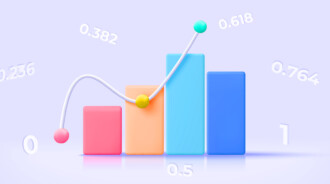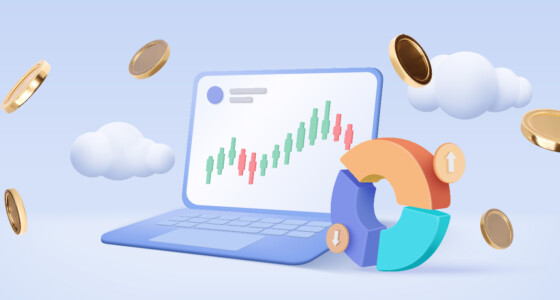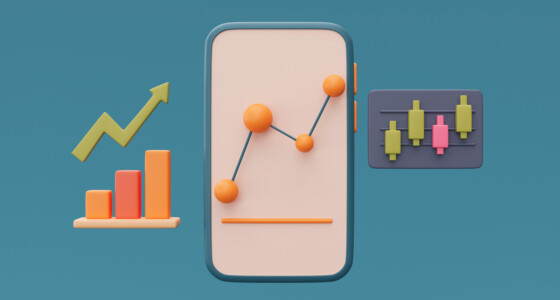

Backtesting is a well-known tool used by traders to check their strategies on historical data. It’s widely recommended by trading teachers. However, the advantages of backtesting are disputable. Let’s discover why real-time trading is never as good as trading on historical data.
1. Perfect conditions
Although market trends repeat, and traders are supposed to behave the same in similar market conditions, you won’t find absolutely identical price movements. Backtesting is done in a specific period that could be favorable for your strategy. However, current conditions may be less favorable. According to statistics, it requires at least 200 trades to prove the strategy’s efficiency.
Some traders also refuse to accept that they’re looking for perfect conditions, so their strategies look effective. It doesn’t matter whether you apply a popular strategy or your own, you will look for a situation in which the price moved so that the take-profit and stop-loss levels worked. However, the real market won’t adapt to certain rules.
Another thing that can lead to misleading backtesting is that you already know how the market will behave after. For instance, you want to enter the market at the previous candlestick close. When backtesting the strategy, you know that the price closed at a certain level. However, when opening a real trade, you can only guess the closing price.
2. Ignored fundamentals
Price movements depend on fundamental events. Technical analysis is used only to find correlations between previous and current price fluctuations. Most strategies are based on technical signals and exclude fundamental factors.
Although you can apply strategies based on fundamental analysis, the market reaction will never be the same. For instance, market sentiment will depend not only on the percentage of US CPI but also on the current political and economic conditions. Another factor that can cause overreaction is when current figures reach historical highs and lows.
If you plan to backtest a strategy, you need to find conditions that resemble the current environment the most. This will require lots of time and information.
3. Unexpected events
Fortunately, the markets are not shaken by dramatic news daily. However, there is always a risk that a global cataclysm will lead to enormous market volatility and panic.
When backtesting your strategy, check whether there was an event that could cause outstanding price movements. You can get a clue about such an event by looking at the price chart. If there are gaps or enormous price fluctuations, it means that the market wasn’t in its common conditions. You better not use such a period for testing your trading approach.
Also, you should be ready that such an event will occur when you open a real-time trade. Here, there are no recommendations, except for one – leave the market as soon as possible and wait for it to calm down.

4. Costs
Trading is not only about the funds you put in a trade. You should remember about slippage, commissions, and rollover rates if you keep a position open overnight. You can calculate fees but not slippage.
A rollover rate is either added to or subtracted from your funds. If you set take-profit and stop-loss orders for long-term trades, you assume that the price may reach them for an approximate period that can vary depending on the market volatility. This means that you can’t know exactly how much will be added or subtracted from your account.
Traders always forget about these expenses and consider only actual price movements.
5. Psychology
Backtesting and simulating trading have one thing in common – they don’t consider emotions. You don’t risk real funds when backtesting nor when trading on a demo account do you risk real funds. It’s a huge drawback traders forget about. When testing a strategy, you don’t risk anything. You just need to find the conditions that will match the rules you developed.
The real market may lead to greed if the strategy works well and the price moves in a favorable direction. Also, the real-time trade may cause panic if the traded asset turns against you. It’s impossible to test feelings. You can just train your reactions by trading frequently.
Can you still apply backtesting?
Backtesting has existed for many years. This means that this approach is still effective but should be used cautiously. Here are several tips that will help you backtest your trading strategies while keeping a realistic mindset.
- Expect a smaller income. You should remember that your trading strategy won’t be as effective as it was based on historical data. If you calculate potential profit, you should be ready for the sum to be smaller with a real trade.
- Backtest simple strategies. The risk of misleading backtesting increases if you apply a trading strategy with numerous variables. Such a strategy is questionable even for real-time trading. The simpler the system is, the more likely it is to provide realistic results.
- Believe in the worst. It’s better to assume the worst than to believe in a perfect market that will create conditions for highly successful trades. Low expectations lead to fewer disappointments if something doesn’t work.
Takeaway
You shouldn’t avoid backtesting, as doing so may hold back your trading approach. However, you shouldn’t fully rely on it, as it will never provide 100% accurate results.









